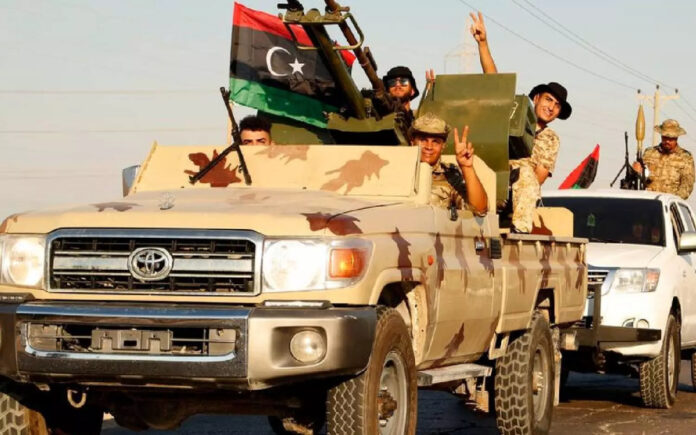Tripoli: The United Nations mission in Libya voiced serious concern late Thursday regarding the growing military mobilisations in Tripoli and the escalating threats to resolve a crisis involving the Central Bank of Libya (CBL). Stephanie Koury, the mission’s deputy head, briefed the U.N. Security Council on Monday about the rapid deterioration of Libya’s political and military situations over the past two months, marked by escalating armed faction mobilisations.
“The display of military power and armed confrontations in densely populated neighborhoods is unacceptable and threatens the lives and security of civilians,” the mission stated in its Thursday announcement.
Recent tensions have surged following political attempts to remove Sadiq al-Kabir, the head of the Central Bank of Libya, with rival armed factions aligning on opposing sides. Mohammed al-Shokri, proposed as Kabir’s successor, declared on Friday that he would accept the role only if both of Libya’s rival legislative bodies endorsed him.
Libya, a significant oil producer in the Mediterranean, has struggled with instability since the 2011 NATO-backed uprising. The country has been divided since 2014 between warring eastern and western factions, drawing in external support from Russia and Turkey. Although major fighting ceased with a 2020 ceasefire, attempts to resolve the political crisis have faltered, leaving major factions entrenched and competing for control over Libya’s substantial economic resources.
Political leaders in Libya are either from bodies elected over a decade ago or appointed during failed international peace efforts. Efforts to hold national elections to replace all political bodies have stalled.
Also Read | Israeli Airstrikes in Lebanon Claim Lives of Six Fighters and One Child
Eastern Libya, where the parliament is based, is controlled by Khalifa Haftar’s Libyan National Army (LNA). In contrast, Tripoli and the northwest, housing the internationally recognized Government of National Unity (GNU) and most major state institutions, are home to rival armed factions engaged in repeated conflicts.
In late July and early August, rival groups in northwest Libya mobilised against each other, while the LNA deployed forces to southwest Libya, raising concerns of potential east-west clashes. Additionally, the eastern-based House of Representatives has renewed calls to remove the GNU and Presidency Council, and there is a stalemate in the High State Council following a contested leadership vote. Tensions have further escalated over the control of the central bank after Presidency Council head Mohammed al-Menfi’s decision to replace Kabir and the board was rejected by the parliament.



